Memorable N.B. placements for doctors in training can bolster recruitment prospects
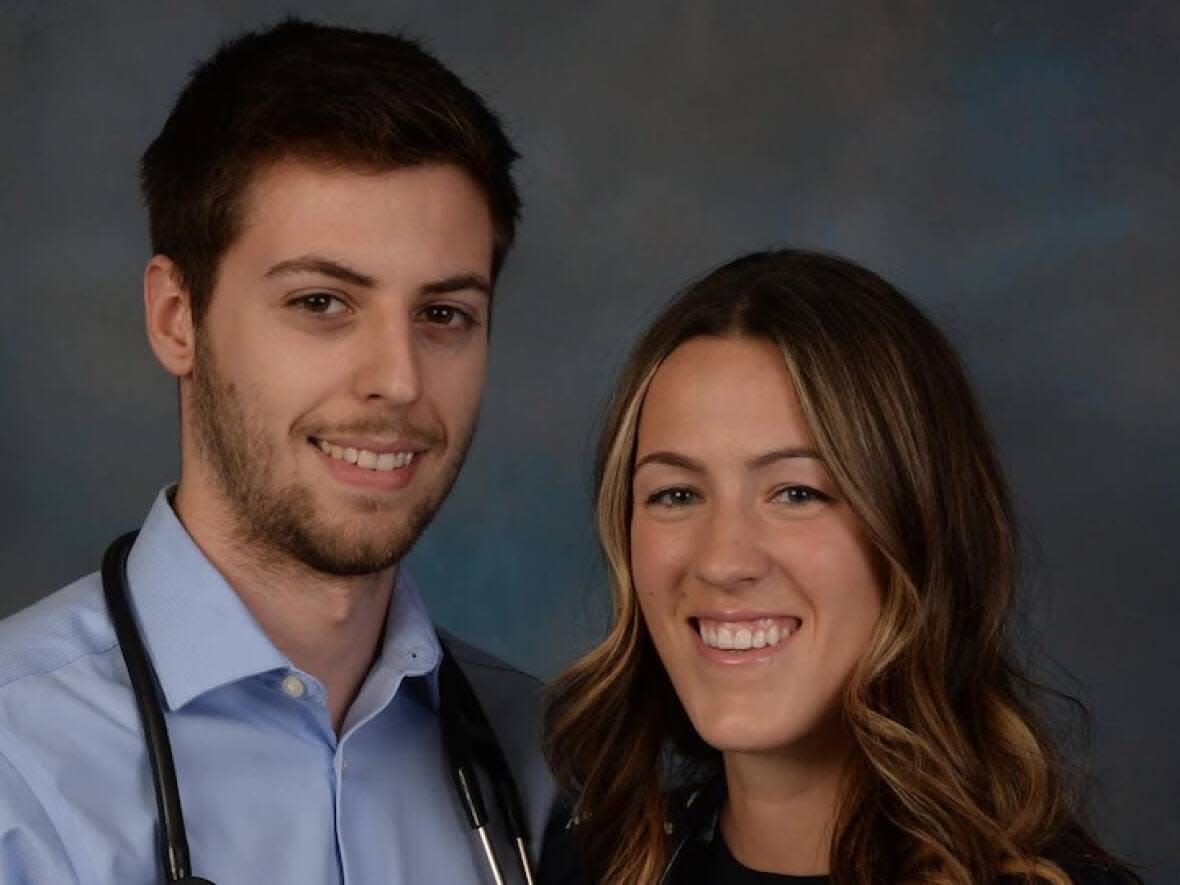
After their three-month rotation in Edmundston, Dr. Geneviève Aubé and Dr. Justin Boissonnault decided the northwestern New Brunswick city was the place they wanted to practise.
Their short-term stay in Edmundston was part of their residency after medical school at the Université de Moncton. A residency in family medicine is two years long.
Even though the couple are not from Edmundston, and they don't have family in that area, the sense of community and the francophone environment made them want to stay.
"We liked that it was a smaller community, that there was a great community spirit, a francophone environment," Aubé told Radio-Canada. "There were lots of outdoor activities. In the background, there are mountains in the middle of the city. It's a quieter town."
Memorable placements could help persuade other students to stay and practise in New Brunswick after graduation, the two doctors say.
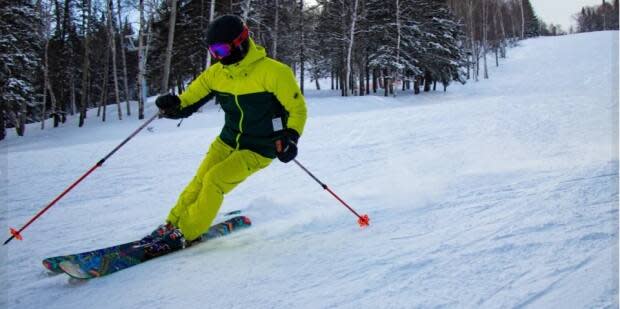
The love for their colleagues
During their placement, the couple got the chance to meet and shadow colleagues.
Several doctors in the region invited the couple to dinners to discuss medicine, as well as the attractions in the area.
"It helped us a lot to see what it would be like to practise within this team in Edmundston," said Aubé.
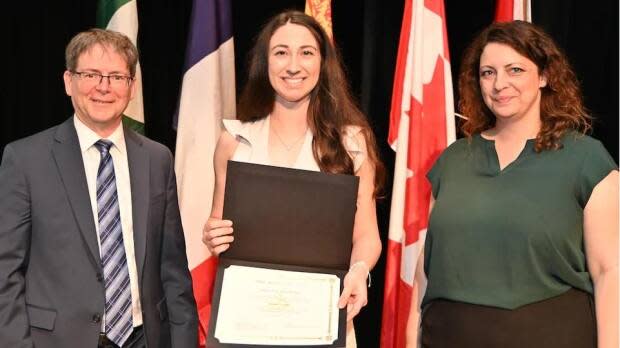
The are different ways medical students and grads can get some experience in clinical settings in New Brunswick before they decide where to practise.
At Dalhousie Medicine New Brunswick, the medical school program based in Saint John, students in their third and fourth years rotate through specialties.
They can rotate through different communities as well, according to Dr. Robert Boulay, assistant dean for clinical education at the school.
These clinical placements, which used to be called internships, last for 48 weeks and can be done anywhere in the province. There is no shortage of such placements, Boulay said.
"If our communities put energy into selling themselves to these young physicians … that goes a long way to having students feel welcome in those communities," Boulay said. "And having them feel that, 'Hey, this is a place where I can live, I can develop relationships, and I can perhaps have a family in these communities.'"
At the Université de Moncton's medical school, students who are specializing in family medicine, complete a core of their training at the school in Moncton and Dieppe. While the students do rotations in a variety of places in the province, in their second year, they have the option of doing a three-month rotation in either Edmundston or Bathurst.
Dr. Jenny-Lee Albert is one of 19 graduates from the Moncton school this year. She grew up in Saint-Simon in the Acadian Peninsula and will return to practise there in the hospitals at Tracadie and Caraquet.
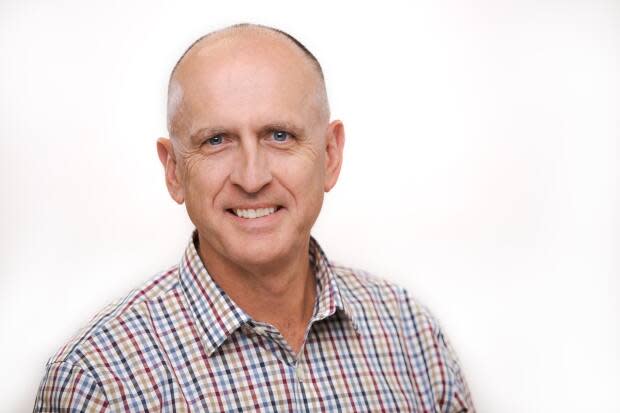
Practising on the peninsula was always her plan, even before she began her medical studies. But the clinical experience she completed in the region confirmed her choice.
"I adored my colleagues whether it was the nurses, the doctors or everyone who worked in the hospital," Albert said in French to Radio-Canada. "I thought it was like a good relationship because whether you like it or not, small circles are a little bit more personal.
"We're closer, so that's what I liked about that environment."
Following graduation, students apply to their specialty and site of choice. From there, the students get matched up with a residency, which could be anywhere in Canada, said Boulay.
The only residencies students can fully complete in New Brunswick are family medicine and more recently, psychiatry.
"Other than that, those students then have to leave the province to do other residency training elsewhere, if they want to be any other specialty but those," said Boulay.
Medical residency training can take two to five years to complete, depending on the specialty.
The Saint John school graduated 31 medical students this year, but it is unclear how many of these grads are staying in the province. According to Allie Fournier, a spokesperson for the medical school, of the 43 per cent of graduates from 2019 who have completed residency training, 57 per cent are practising in New Brunswick.
Using placements to recruit
Dr. Michel Landry, the director of the Université de Moncton's medical school, agrees that good clinical placements can influence whether doctors trained in New Brunswick choose to stay in the province, and in more rural areas.
"When you are going to do training in an environment and you have good experiences, that is one of the most important factors of where you are going to settle later in practice," said Landry, who is also the co-ordinator of the French training program in medicine in the province.
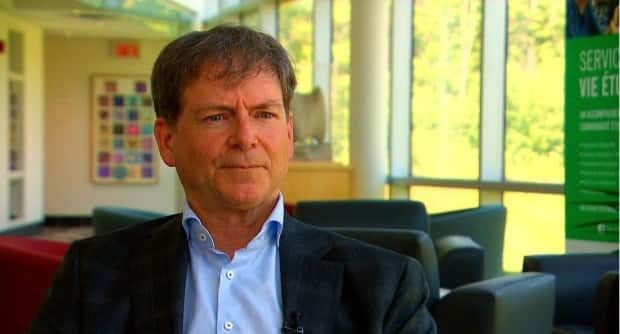
Sixteen of the 19 graduates of the medical school in Moncton this year will take residencies in New Brunswick, the school said.
"If they go five, six years to Quebec or Ontario or somewhere to do their training, if they like the environment, they find a life partner who settles, it has always been a challenge to bring them back," said Landry.
Dr. Boulay, from the Dalhousie school, said multiple factors influence doctors' decisions on where to practise after they do their residencies.
One is that they get "highly specialized" in their training, and there might not be demand for that specialty in New Brunswick.
"For instance, if someone trains extensively and becomes a very highly trained interventional cardiologist, of which we already have a certain number in New Brunswick of interventional cardiologists, well, there just may not be opportunities for them to return to New Brunswick," he said.
Hoping to add 8 seats for students
The Université de Moncton's medical school welcomes an average of 24 people to the program a year, but Landry would like to see this increase to 32 by September 2023.
As health-care workers are already overstretched, it would be harder to train more students, but Landry said he's confident about getting those additional seats.
According to Landry, most of the New Brunswick students that train in the province have a 90 per cent chance of staying. Whereas, students coming from other provinces have a 50 per cent chance of staying.
"Trying to recruit people from outside is not as successful or harder than to train them locally," said Landry.


